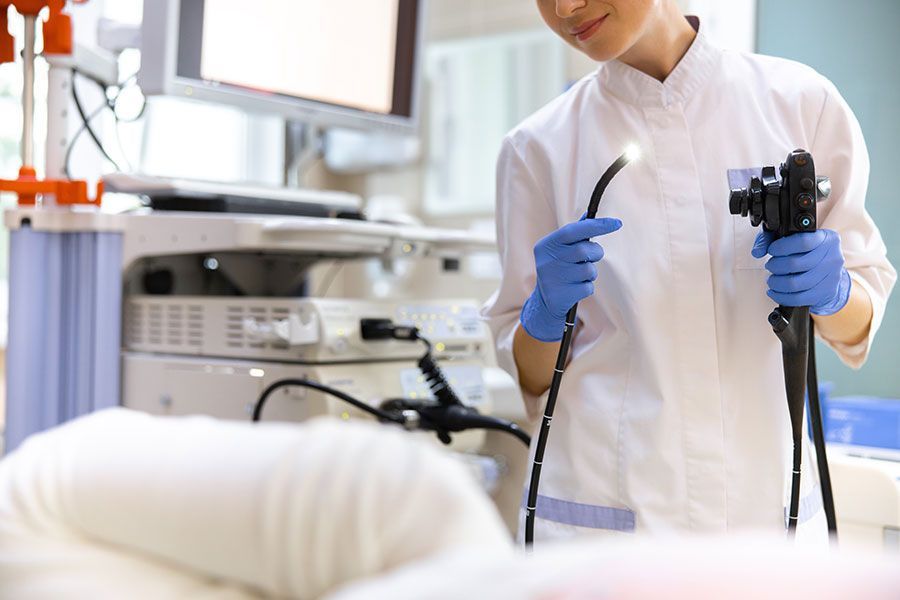Mount Elizabeth Novena Hospital #10-48/49
A Colorectal Specialists' Guide to Abdominal Pain
Recurring abdominal pain can be distressing. It may leave you wondering about its cause. Whether the pain is mild or severe, it is best advised to know what you are dealing with and how to address it.
This guide explores common causes of abdominal pain, the associated symptoms, and when to see a doctor.
Causes of abdominal pain
Gastritis and Reflux
Gastritis and reflux are common causes of abdominal bloating and discomfort. This can result from overeating, consuming spicy or high-fat foods, or consuming too much alcohol or caffeine. Other symptoms include:
- Bloating
- Nausea
- Burping
In some instances, trapped gas can cause sharp, cramp-like pains in different parts of the abdomen. This discomfort is often due to swallowed air or the breakdown of certain foods in the digestive system.
Gastroenteritis
Gastroenteritis, often loosely coined as stomach flu, is an infection of the stomach and intestines. Viruses, bacteria, or parasites can cause it. You may have gastroenteritis if you experience:
- Lower abdominal pain
- Diarrhoea
- Vomiting
- Fever
Due to its acute onset and severe symptoms, this condition can be particularly distressing. To ensure recovery, you must stay hydrated and rest well.
Food intolerances and allergies
Food intolerances and allergies can lead to abdominal pain when the body reacts negatively to certain foods. Common triggers include lactose (found in dairy products) and gluten (found in wheat). Symptoms can include:
- Abdominal bloating
- Diarrhoea
- Nausea
- Cramping
We recommend you identify and avoid trigger foods to help manage symptoms and prevent further discomfort.
Irritable Bowel Syndrome (IBS)
IBS is a recurrent condition of the gastrointestinal tract. It presents with a group of symptoms that occur together, including:
- Lower abdominal pain
- Bloating
- Gas
- Diarrhoea or constipation
Stress and certain foods can set off IBS symptoms. Symptoms should subside once you manage stress and change your diet. However, it must be emphasised that the exact etiology of IBS remains elusive and it is a diagnosis of exclusion, meaning that it is determined when all other causes of symptoms have been excluded.
Inflammatory Bowel Disease (IBD)
IBD includes Crohn's disease and ulcerative colitis. They both cause chronic inflammation of the gastrointestinal tract. Symptoms can be severe and may involve:
- Lower abdominal pain
- Diarrhoea
- Blood in stool
- Weight loss
These conditions require medical treatment and, in some cases, surgical intervention to manage symptoms and prevent complications.
Diverticulitis
Diverticulitis occurs when small pouches (diverticula) in the colon become inflamed or infected. You might experience:
- Lower abdominal pain
- Fever
- Nausea
- Changes in bowel habits
A high-fibre diet can help prevent diverticulitis, while treatment may require antibiotics or surgery in severe cases.
Colorectal cancer
Colon cancer is a type of gastrointestinal cancer that needs immediate treatment. Watch out for symptoms like:
- Lower abdominal pain
- Blood in stool
- Changes in bowel habits
- Unexplained weight loss
Regular
colonoscopy screening will enable the early detection of this condition and get you the needed treatment.
When to see a doctor
Seek medical attention if you experience any of the following symptoms:
- Severe or persistent abdominal discomfort: Pain that is intense or does not go away after a few hours.
- Blood in stool: Bloody or darkened stools can indicate gastrointestinal bleeding.
- Unexplained weight loss: Losing weight involuntarily can indicate a serious underlying condition.
- Prolonged changes in bowel habits: Diarrhoea, constipation, or changes in stool consistency that last more than a few days.
- Fever: Fever accompanying abdominal pain can indicate an infection.
- Nausea and vomiting: Persistent nausea and vomiting, especially if unable to keep food down.
- Abdominal bloating: Severe or persistent bloating, particularly if it is accompanied by pain.
- Anal irritation and swelling: Persistent or severe symptoms around the anus.
Diagnostic tests and procedures
To diagnose the abdominal pain, your doctor may order a series of tests and procedures to pinpoint the underlying issue.
Blood tests
Blood tests can help identify infections, inflammation, and other conditions that may cause abdominal pain. They can also assess overall health and organ function.
Stool tests
Stool tests detect blood in the stool, infections, and other abnormalities in the digestive tract. They are essential for diagnosing conditions like IBD, diseases, and colorectal cancer.
Imaging studies
Imaging tests provide detailed images of the abdominal organs. Tests such as ultrasound scans, CT scans, and MRI scans can help identify structural abnormalities, inflammation, and tumours.
Endoscopic procedures
Endoscopic procedures, including
gastroscopy
and
colonoscopy
allow doctors to view the inside of the digestive tract using a flexible tube with a camera. These procedures will detect issues like ulcers, tumours, and inflammation.
Screen yourself today
Understanding the causes of abdominal pain and the available diagnostic options can empower you to take control of your health. If you have persistent abdominal pain, seek medical advice to get an accurate diagnosis.
As a preventive measure, we recommend you schedule regular screenings to detect serious conditions early and get prompt treatment. At
Colorectal Clinic Associates, our specialists in Singapore provide gastrointestinal screening and comprehensive care for gastrointestinal issues.






